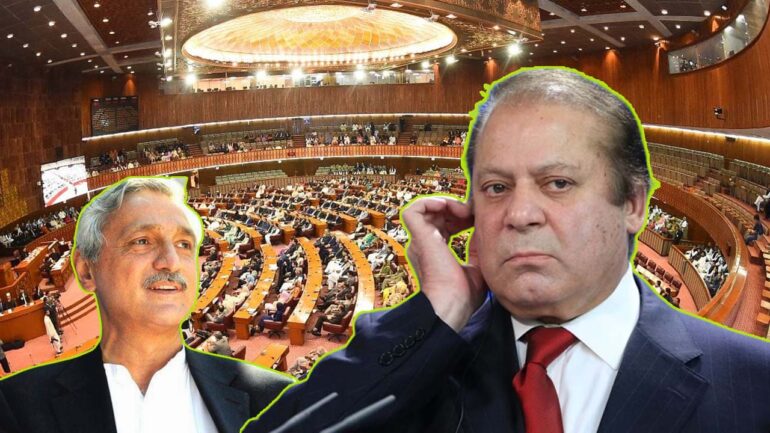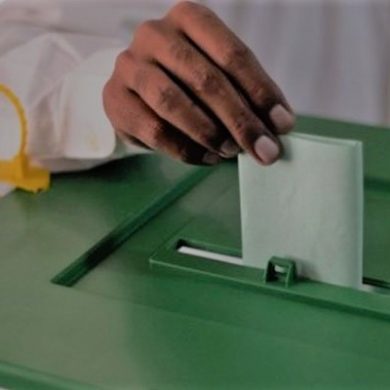The National Assembly approved a bill on Sunday to amend the Elections Act 2017, aiming to restrict the disqualification of lawmakers to a maximum of five years, with retrospective effect.
The bill, titled Elections (Amendment) Bill 2023, also seeks to grant the Election Commission of Pakistan (ECP) unilateral authority to announce election dates without consulting the president.
Initially focused solely on enhancing ECP powers, the bill underwent an addition on June 16 in the Senate, incorporating Clause 4, which addresses the disqualification of lawmakers. Finance Minister Ishaq Dar presented the bill in the National Assembly, and it is set to be enforced immediately upon approval.
The proposed amendments are based on Article 62(f) of the Constitution, which stipulates the qualifications for membership in Parliament. It states that a person must be sagacious, righteous, non-profligate, honest, and ameen (trustworthy), with no declaration to the contrary by a court of law.
Regarding the period of disqualification for lawmakers, the bill includes an amendment to Section 232 of the Election Act, 2017, which pertains to disqualification due to offenses. Clause 4 of the bill specifies that the substitution of Section 232 shall be deemed to have been in effect since the commencement of the Constitution (Eighteenth Amendment) Act, 2010, regardless of any conflicting provisions.
The amendment further outlines that the procedure, manner, and duration of disqualifications and qualifications should adhere to the relevant provisions of Articles 62 and 63 of the Constitution. In cases where no such provisions exist, the provisions of the Elections Act will apply.
Defence Minister Khawaja Asif, speaking on the television program ‘Pakistan Tonight,’ stated that the disqualification amendment was not specific to PML-N leader Nawaz Sharif. He clarified that although the amendment is currently applicable to Sharif given the circumstances, it is not intended to target him. Asif argued that lifetime disqualification goes against fundamental constitutional rights and highlighted differing opinions on the matter within the Supreme Court itself.
The proposed amendments also grant the ECP unilateral power to announce election dates without consulting the president. Sections 57(1) and 58 of the Elections Act are set to be amended to empower the ECP in this regard.
Section 57(1) states that the ECP shall announce the date or dates of the general elections through an official gazette notification, calling upon constituencies to elect their representatives. Section 58 enables the ECP to make alterations in the election program or issue a fresh election program with revised poll dates, as deemed necessary for the implementation of the act, regardless of the previously issued notification under Section 57.



